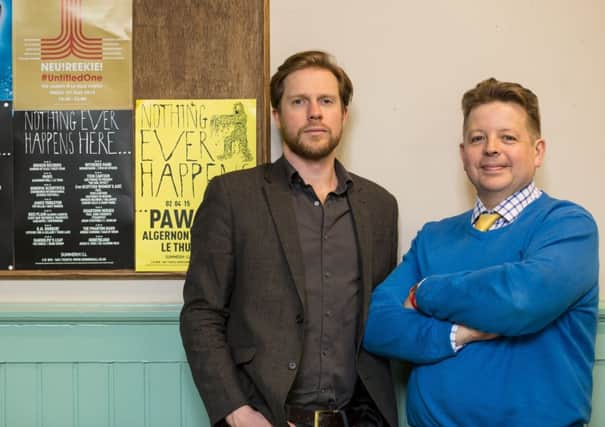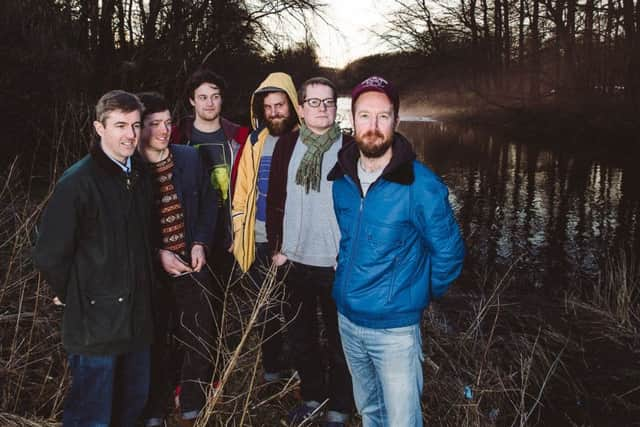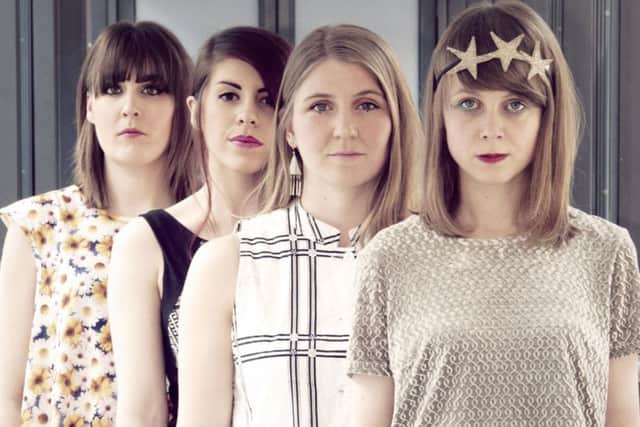Summerhall to ignite Edinburgh’s music revolution


‘THE title is supposed to be ironic,” says Summerhall music booker Jamie Sutherland of his new programme of live music events at the venue. Nothing Ever Happens Here is a play on the (mis)apprehension that Edinburgh’s live music scene is perennially in the gutter, for all manner of reasons. “It’s also a little bit finger-pointing, because a lot of stuff happens in this city, but many people spend their time not going to it then complaining that nothing happens.”
The simple fact that Summerhall, under general manager Sam Gough, is now running a significant programme of live music to go with its world class arts offerings is reason enough to celebrate, with an impressive two-month opening programme of events including well-known local faces James Yorkston, RM Hubbert, The Phantom Band, Teen Canteen, the Lost Map label with Rozi Plain’s album launch, and Broken Records (Sutherland is in the latter group).
Advertisement
Hide AdYet it’s also well-timed, with a bubbling online discussion going on about the city’s live music provision and how it can be improved, coupled with an apparent show of willingness from the council to discuss how they can help via the Music is Audible working groups. This is against the backdrop of alarm that the Phoenix bar has been told to stop live music nights and the Queen’s Hall being compelled to take down advertising banners, both on the strength of a “sole complainer”, not to mention the sale of live venue the Picture House to the Wetherspoon’s pub chain, which has seen it left empty and “tinned-up” for 14 months.


“The Music is Audible working group has been a great way to air our views, and I think some very interesting changes may be forthcoming,” says Nick Stewart, manager and booker at gig and club venue Sneaky Pete’s on the Cowgate. “The council has to choose between having a city centre which is silent and dull, or a city centre where culture is visible and audible. They seem to be moving towards the latter, but the proof’s yet to be seen in changes to legislation that would allow music venues to operate with less hindrance. There’s some licensing red tape relating to their ‘inaudibility’ clause (that no music must be audible from a venue) that they simply must cut.”
Stewart doesn’t lay the blame squarely at the council’s door, though. He insists that more bands should go to see other bands play, to broaden their horizons, and that audiences need to engage more to see the results. “The more that people attend shows, the more inclined promoters will be to put concerts on,” is his message. “If Edinburgh really wants gigs, then they have to attend.”
This view is repeated by Nicky Carder, live music booker at Electric Circus on Market Street, and she has other suggestions too. “We’re situated next to an art gallery,” she says, referring to the Fruitmarket. “I’d like to see the council recognise our grassroots music venues as being of the same cultural importance as our galleries and theatres. It would also be great to be supported, valued and celebrated for our achievements outside the Fringe Festival particularly.”
From the perspective of an independent promoter who isn’t connected to a single venue, Braw Gigs’ Nick Herd has his own take. Although he sees some of the council’s decisions as “rash” and “ham-fisted”, he spreads responsibility for improvement around. “I’d rather be busy booking and promoting shows on the ground than discussing things with interchangeable members of the council ad nauseam,” he says. “I might sound cynical here, but I think money talks with the council – if they don’t have to spend any of their budget helping live music then something might come of it. I also think a lot of people have unrealistic opinions on how the council can help. Their priority is keeping the streets clean, fixing drains, mending roads and saving staff from mass redundancies.”


Besides, things aren’t as bad as they’re made out to be, he says – they can just always be better. “It’s a bit of a self-fulfilling prophecy if you constantly drive home a message which isn’t entirely true that nothing happens here, because there’s been a healthy buzz of underground activity in the live music and club scene by regular bookers for a few years now. Larger venues that should be catering for bigger touring acts are definitely in need, however.
Advertisement
Hide Ad“Personally, I don’t think medium and larger venues in Edinburgh have the infrastructure or the management to compete with spaces in Glasgow. They’re pricing out local promoters who could actually book events which they lack the vision to do themselves, when they should be embracing them. There’s definitely an audience and a desire from touring artists to play in Edinburgh, which makes it all the more exasperating. They’re missing a serious opportunity, simply because they refuse to take any creative risks.”
One overriding sense, though, is that potentially navel-gazing talk of the business and politics of running a grassroots entertainment industry is secondary for all involved to the sheer pleasure of doing it. “There’s some great stuff going on from artists and bookers who don’t feel the need to shout about it,” says Herd. “I get more excited by a room of 50 people really enjoying themselves over a big show of hundreds of folks just chattering away over the bands, that kind of disposable audience doesn’t interest me.”
Advertisement
Hide Ad“People say that Edinburgh has an insular music scene,” says Sutherland, “but I don’t think that’s the case. I think it’s a very supportive music scene.” The capacity of his gigs in Summerhall’s Dissection Room Bar is around 450, placing it as the only venue in the city between Electric Circus and the Liquid Room, around 200 and 600 capacity respectively. At the moment he’s in talks with UK-wide promoters to bring their touring bands to Summerhall, starting during the Festival, but discussions are at an early stage.
Separately, Stewart also notes that age-related tastes might be at play. Often, he says, live audiences are older than the bands who play, which is strange in such a student-filled city. At the same time, his club nights playing “credible, non-commercial music” are packed through the week.
He wonders whether experimenting with late night live shows might work. “What gets me excited is when we go out on a limb to book an act that we love, without being sure there’s an audience for them, and it pays off. Right now I’d say it’s an OK time to take risks, but not the best I’ve seen.” n
• Nothing Ever Happens Here begins at Summerhall, Edinburgh, on Thursday with Broken Records, Garden of Elks and Fuzzy Star, www.summerhall.co.uk